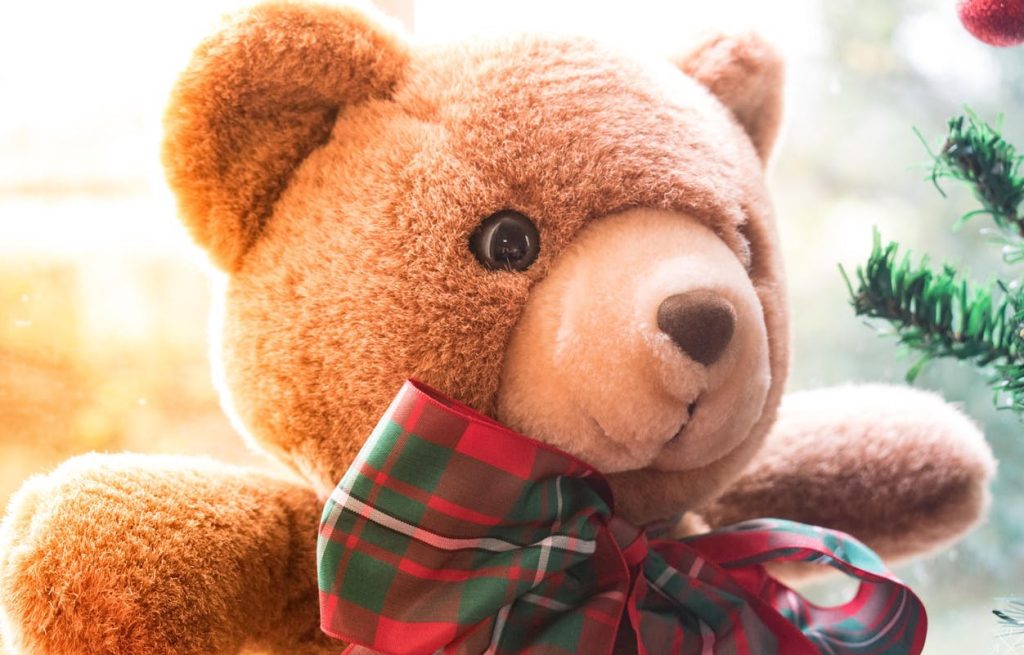blog
Why Teddy Bears Are More Than Just Toys
Teddy bears have been cherished companions for generations, transcending their role as simple stuffed animals. Whether it’s a child’s first friend, a comforting presence during a difficult time, or a nostalgic keepsake for adults, teddy bears are far more than just toys. They hold deep emotional significance and have become symbols of comfort, security, love, and even cultural tradition.
In this article, we’ll explore the many reasons why teddy bears are so much more than mere playthings. From their psychological and emotional impact to their cultural and historical significance, we’ll dive into what makes teddy bears a cherished part of our lives.
1. Teddy Bears as Comfort Objects
At their core, teddy bears are comfort objects that provide emotional support, especially during childhood. For children, the presence of a beloved stuffed animal can provide a sense of security, reduce anxiety, and help them navigate the ups and downs of life. Whether they’re used to cope with fear, stress, or loneliness, teddy bears offer a reliable source of comfort and reassurance.
The Science of Comfort
Psychologists have long studied the relationship between children and their comfort objects, such as teddy bears. The concept of transitional objects, coined by psychoanalyst Donald Winnicott, refers to items that help children make the transition from dependence on their caregivers to independence. A teddy bear often plays this role by acting as a physical representation of love and affection. This connection fosters emotional regulation and provides a stable, comforting presence during times of change, such as starting school, moving to a new home, or experiencing illness.
2. Teddy Bears and Emotional Development
Beyond offering comfort, teddy bears play an essential role in emotional development. Through the act of bonding with a teddy bear, children learn empathy, nurturing behaviors, and social skills. As children engage in pretend play with their teddy bears—feeding them, comforting them, and even having conversations with them—they are practicing and refining key emotional and social skills that are important throughout life.
Developing Empathy and Care
Caring for a teddy bear can help children develop empathy. When a child notices that their bear is “sad” or “sick,” they may comfort it in the same way they would comfort a friend or family member. This nurturing behavior helps children understand others’ emotions and learn how to respond to them. Additionally, many children engage in role-playing activities where their teddy bears are the main characters. Through these imaginative scenarios, they learn to express their own feelings and understand the emotions of others.
3. Teddy Bears as Symbols of Love and Security
Teddy bears have long been symbols of love and security, making them the perfect gift for a wide range of occasions, from birthdays to anniversaries to celebrations of new life. Many people give teddy bears to their loved ones to symbolize affection, protection, and care. The act of gifting a teddy bear represents a gesture of emotional support and closeness, reinforcing bonds between family members, friends, and even romantic partners.
A Gift of Affection
Giving a teddy bear is often seen as a heartfelt expression of love. From the iconic “I love you” bear given on Valentine’s Day to the comforting teddy bear gifted to a child, these plush toys are tangible reminders of how much someone is cared for. The soft, huggable nature of teddy bears makes them an ideal symbol of warmth and affection. Their timeless appeal ensures that teddy bears remain a beloved gift for people of all ages.
4. Teddy Bears in Times of Crisis and Loss
Teddy bears also play a significant role during times of crisis or loss. Whether they are used to comfort children who have lost a parent or provide solace to adults grieving a loved one, teddy bears are often seen as a source of emotional support during the grieving process.
Providing Comfort in Grief
When a person experiences a loss, the world can feel overwhelming and cold. In these moments, the presence of a teddy bear can bring much-needed comfort. The familiar softness and warmth of a teddy bear can help mitigate feelings of loneliness and provide a source of emotional solace. For children, a teddy bear can act as a safe space, allowing them to process their emotions and find a sense of security amidst difficult times.
Some therapeutic practices even incorporate teddy bears into grief counseling sessions, where children or adults use the bear as a way to express feelings they might otherwise have trouble articulating. These bears often act as a bridge between the emotional world and the outside world, making it easier for individuals to communicate their pain or sorrow.

5. Teddy Bears as Collectibles
While teddy bears are primarily seen as toys for children, they also serve as collectibles for adults. Over the years, many teddy bear brands—such as Steiff, Gund, and Charlie Bears—have produced limited-edition, artist-designed bears that have become highly sought after by collectors. These collectible bears are often crafted from high-quality materials like mohair, alpaca, or cotton, and feature intricate designs that make them unique pieces of art.
A Growing Market for Collectibles
The market for collectible teddy bears has grown significantly over the past few decades. Collectors often seek out rare or vintage teddy bears, and some bears can even appreciate in value over time. Certain brands and specific bears have become symbols of craftsmanship, nostalgia, and artistry, attracting collectors from around the world. For many, collecting teddy bears is not just about acquiring toys; it’s about preserving a piece of childhood, history, and emotional connection.
6. Teddy Bears as Cultural Icons
Teddy bears have also achieved a level of cultural significance that goes beyond their role as toys. From literature and film to global marketing campaigns, teddy bears have become symbols of childhood innocence and joy, frequently appearing in stories and advertisements aimed at evoking feelings of nostalgia and warmth.
A Universal Symbol
The teddy bear has crossed cultural boundaries, becoming a universally recognized symbol of comfort and childhood across the globe. From Winnie the Pooh, the beloved bear from A.A. Milne’s classic stories, to the massive popularity of teddy bears in various forms of media, these plush animals have become ingrained in popular culture. In fact, some of the most famous teddy bear characters—such as Paddington Bear or the aforementioned Winnie the Pooh—have even transcended their role as toys, becoming global icons and symbols of adventure, kindness, and joy.
Many companies use teddy bears in their advertising campaigns to evoke feelings of warmth and trust. Whether it’s an insurance company using a teddy bear as a mascot or a charitable organization giving teddy bears to children in need, these plush animals serve as powerful symbols of compassion and reliability.
7. Teddy Bears and Mental Health
Beyond their physical presence, teddy bears can have a positive impact on mental health, especially in therapeutic settings. Many people, especially children, find solace in cuddling or talking to a teddy bear when they are feeling anxious, lonely, or depressed. As a result, teddy bears are sometimes incorporated into therapy for individuals with mental health conditions, such as anxiety, depression, or PTSD.
Emotional Regulation and Support
For those suffering from emotional trauma or mental health challenges, teddy bears offer a safe and comforting outlet. Cuddling with a teddy bear can trigger the release of oxytocin, the hormone associated with bonding and stress relief. This physical connection can help individuals calm down during anxiety attacks or moments of high emotional stress. Moreover, the act of holding or hugging a teddy bear can promote feelings of security, which is essential in managing mental health issues.
8. Teddy Bears as Part of Family Traditions
Teddy bears have also become important elements of family traditions. From the first teddy bear a child receives to the cherished bear that is passed down through generations, teddy bears often hold a significant place in the family narrative.
Passing Down Memories
Many families keep teddy bears as heirlooms, passing them down from one generation to the next. These bears often carry with them the memories of those who owned them—memories of love, protection, and comfort. For children who inherit a beloved teddy bear from a parent or grandparent, it can serve as a tangible link to their family’s history. These teddy bears become more than just toys—they become a symbol of familial love and continuity.

9. Teddy Bears in Popular Media and Literature
Teddy bears have become iconic characters in books, movies, and television shows, further cementing their place as more than just toys. From “Winnie the Pooh” to “Ted,” these characters have played vital roles in storytelling, bringing joy and comfort to audiences around the world.
Teddy Bears in Stories and Films
In literature, the teddy bear is often portrayed as a loyal and wise companion, a symbol of innocence and kindness. Characters like Winnie the Pooh and Paddington Bear are not just toys—they are figures with personalities, experiences, and emotions that resonate with audiences of all ages. These teddy bear characters often teach important life lessons, such as the value of friendship, kindness, and love.
Conclusion
Teddy bears are far more than just stuffed animals. They are symbols of comfort, emotional security, and love. Whether they are comforting children, providing solace during times of grief, becoming collectibles, or serving as cultural icons, teddy bears have earned their place in our hearts as much more than toys. They hold emotional significance that transcends their soft fur and stitched features, offering a tangible sense of support and connection in a world that can sometimes feel uncertain.
The teddy bear’s enduring appeal lies in its ability to provide emotional comfort, foster empathy and social skills, and symbolize love and tradition. For those who have a teddy bear in their life, it’s clear that these cherished companions are much more than simple toys—they are lifelong friends, beloved symbols, and timeless reminders of the love and comfort that surrounds us.

